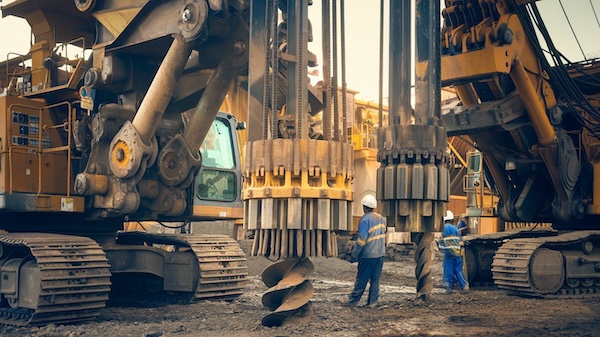
Mining Industry Carbide
Retop designed to provide a thorough overview of tungsten carbide tooling in the mining industry. We tell both mining equipment operators and company decision-makers, such as CEOs, who are evaluating the value of investing in tungsten carbide tools. By explaining the basic properties, various tool types, comparisons with other materials, and the strategic advantages, we aim to guide industry professionals toward making informed choices that enhance productivity and profitability.
Quick and easy: Enter your specifications and get a quote in one business day
Table of Contents
Expertise in Mining Industry Carbide
The mining industry may represent the World’s most demanding use of carbide tools. Modern drills must bore through miles of rock, enduring high temperatures, deformation, impact, and more.
Types of Mining Industry Carbide
- Small Tungsten Carbide Mining Bits
- Large Tungsten Carbide Mining Components
- Tungsten Carbide Mining Drill Bits
- Tungsten Carbide Buttons for Coal Mining
- Tungsten Carbide Buttons for Raod Milling Teeth
- Tungsten Carbide Buttons for Geological Drilling
- Tungsten Carbide Tricone Drill Bits
- Tungsten Carbide Coal Mining Bits
- Rock Drill Bits
Introduction: The Growing Importance of Tungsten Carbide in Mining
As global mining operations become more advanced, resource-intensive, and efficiency-driven, the quality and durability of drilling and cutting tools have come under the spotlight. Tungsten carbide has emerged as a leading solution, meeting the stringent demands of modern mining environments.
Details:
- Rising Industry Challenges: Deeper mines, harder rock formations, and environmental pressures demand robust tools.
- Critical Role of Tooling: Effective tooling influences extraction rates, safety, and long-term operational costs.
- Why Tungsten Carbide Now: Accelerated by innovation and proven field performance, tungsten carbide’s reputation in mining has never been stronger.
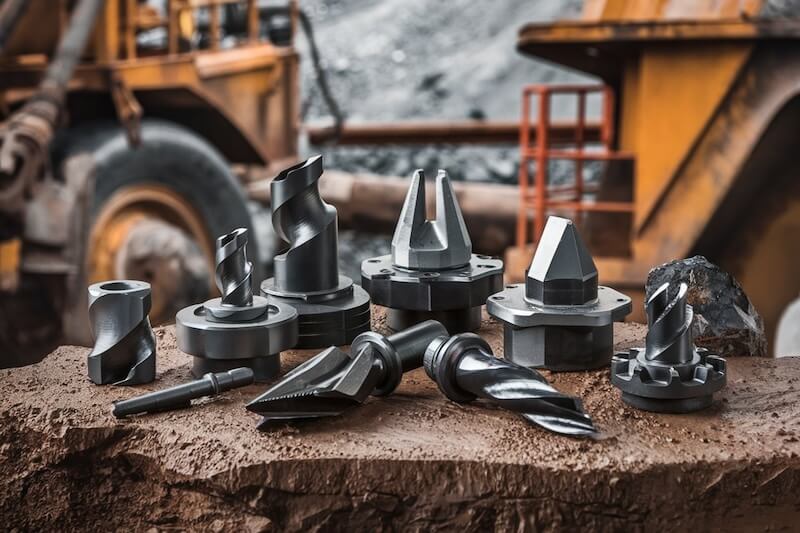
Understanding Tungsten Carbide: Composition and Properties
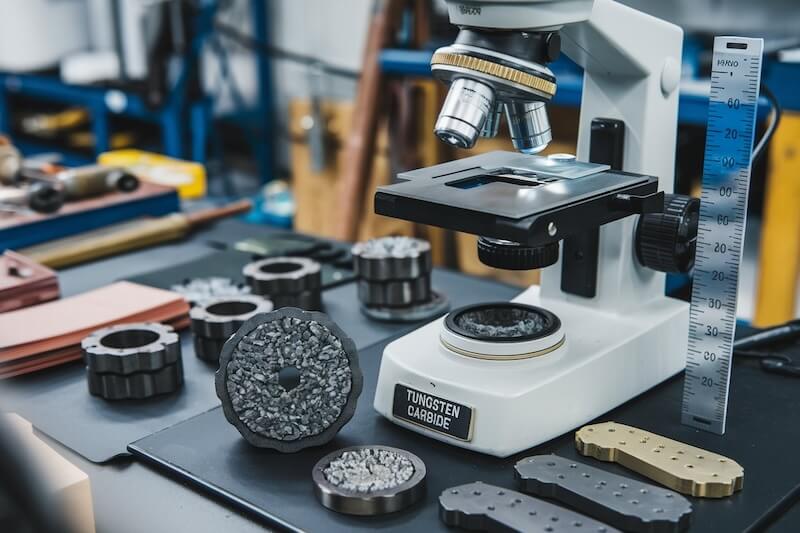
Tungsten carbide’s unique material properties are key to its performance benefits, setting it apart from traditional materials like steel or iron-based alloys.
Details:
- Composition: A blend of tungsten carbide powder and a metallic binder (usually cobalt), sintered at high temperatures to form an exceptionally hard composite.
- Hardness and Wear Resistance: Tungsten carbide ranks near diamond on the hardness scale, enabling it to withstand extreme abrasion and pressure.
- Thermal Stability: High melting point and excellent thermal conductivity maintain tool integrity even in high-friction, high-heat conditions.
Types of Tungsten Carbide Mining Tools
Tungsten carbide’s versatility allows for a wide range of mining tools, each designed for specific tasks and machinery.
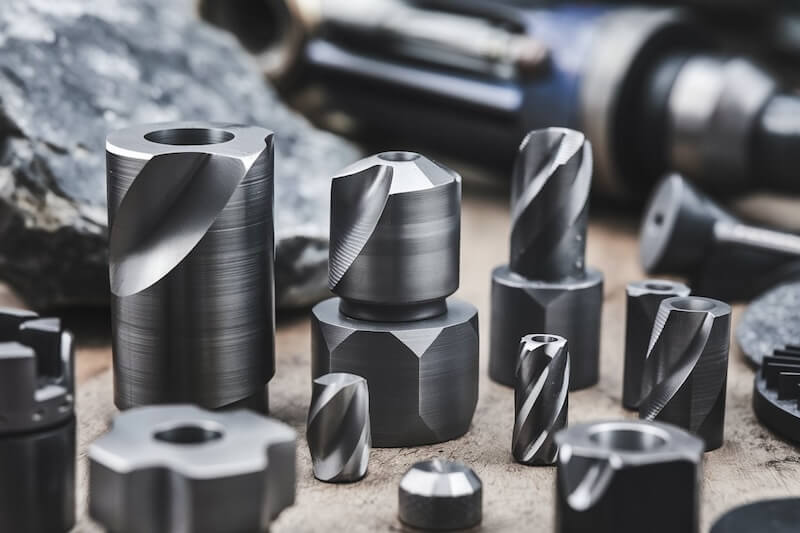
Drill Bits and Cutting Picks
Commonly used in exploration drilling, blast hole drilling, and continuous miners, these tools maintain sharp edges longer.
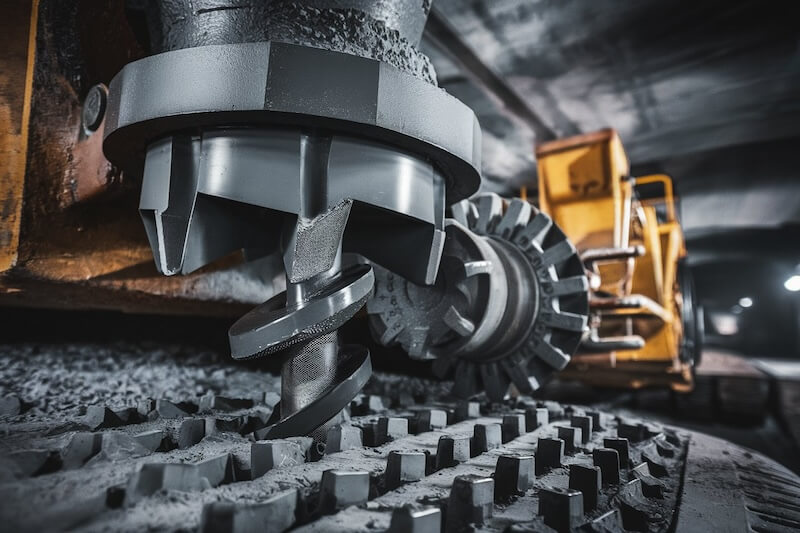
Auger Teeth and Milling Tools
Attached to equipment like continuous miners and longwall shearers, carbide-tipped teeth handle rock and coal efficiently.
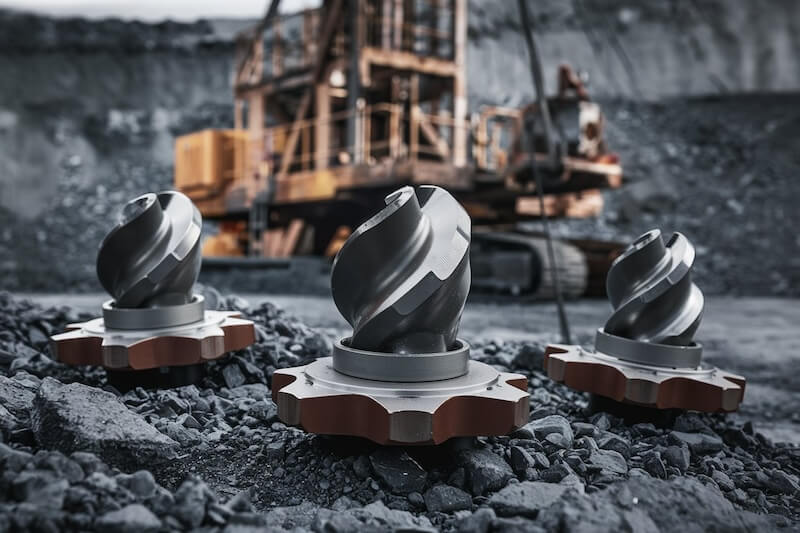
Button Bits and Insert Tools
Found on rotary drills and percussive drilling rigs, tungsten carbide buttons enhance penetration rates and tool life.
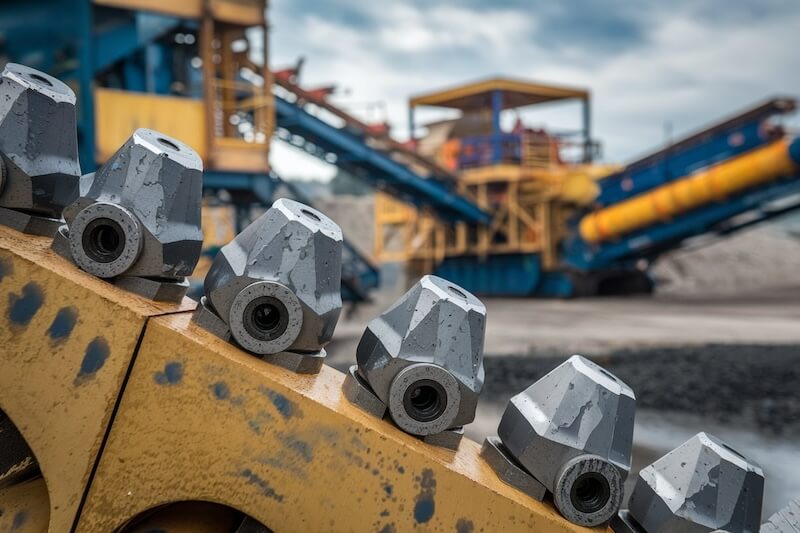
Wear-Resistant Components
Inserts and liners in crushers, chutes, and conveyor systems reduce maintenance and downtime in ore processing.
Quick and easy: Enter your specifications and get a quote in one business day
Comparing Tungsten Carbide to Other Tool Materials
While other materials (e.g., high-speed steel, cast iron) have long histories in mining, tungsten carbide frequently surpasses them in key performance metrics.
Details:
- Hardness vs. Steel: Carbide’s hardness outperforms even the best alloy steels, significantly extending tool life.
- Resistance to Chipping and Fracture: Carbide’s tough microstructure reduces catastrophic failures common in brittle ceramics or low-grade alloys.
- Cost-Efficiency Over Time: Though initial investment may be higher, the reduced frequency of replacements and maintenance yields a stronger long-term ROI.
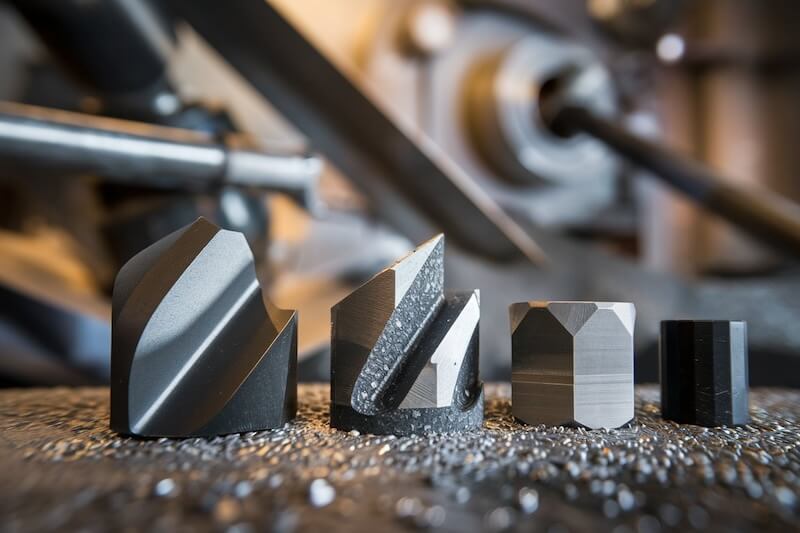
Operational Advantages: Improved Efficiency and Throughput
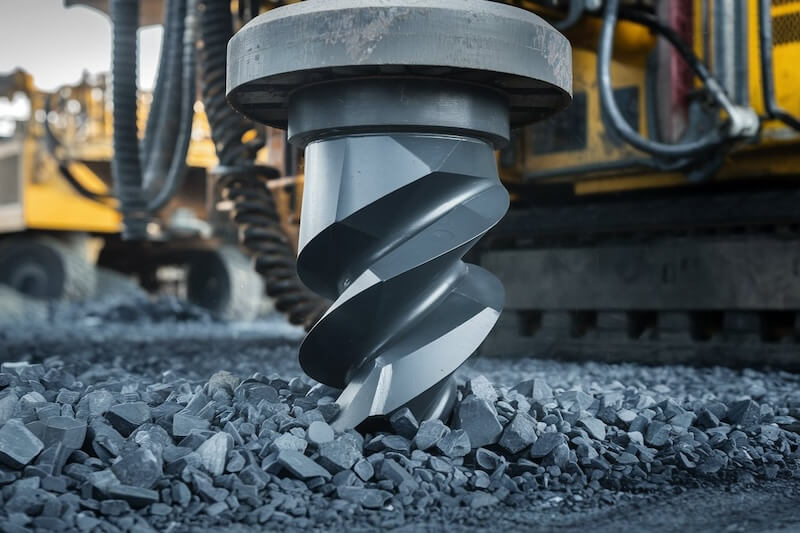
Tungsten carbide wear parts tools don’t just survive tough conditions; they enable faster, more consistent extraction, directly influencing production goals.
Details:
- Higher Penetration Rates: Carbide-tipped drilling bits maintain sharper edges, cutting through rock at greater speeds.
- Reduced Downtime: Less frequent tool changes mean fewer disruptions and stable production schedules.
- Consistent Performance: Predictable wear patterns help operators plan maintenance, minimize uncertainty, and achieve better resource utilization.
Enhanced Safety and Reliability in Harsh Conditions
Tungsten carbide’s durability contributes to a safer working environment, a top priority for operators and corporate decision-makers alike.
Details:
- Fewer Tool Failures: With better resistance to cracking and chipping, carbide reduces the risk of sudden tool breakage that could harm equipment or workers.
- Stable Performance Under Stress: Steady tool integrity under variable loads ensures operators can maintain control and precision.
- Alignment with Safety Regulations: As global health and safety standards tighten, using the most reliable tools aids compliance and reduces accidents.
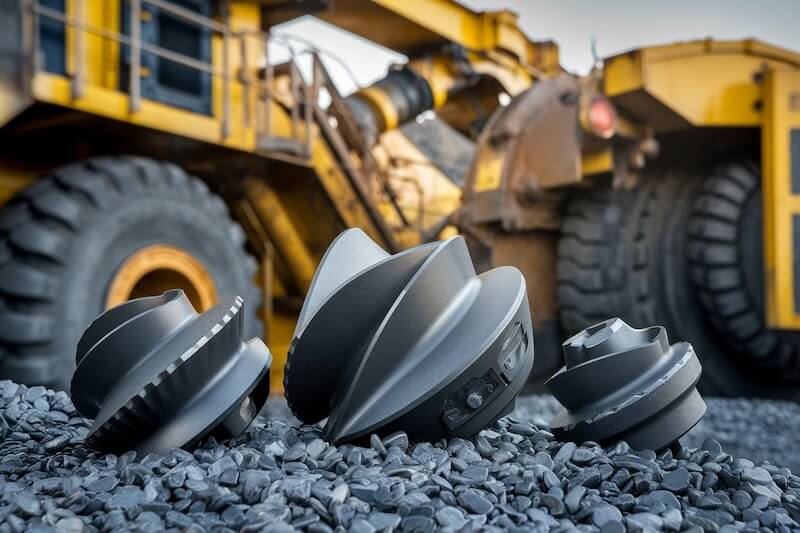
Sustainability and Environmental Considerations
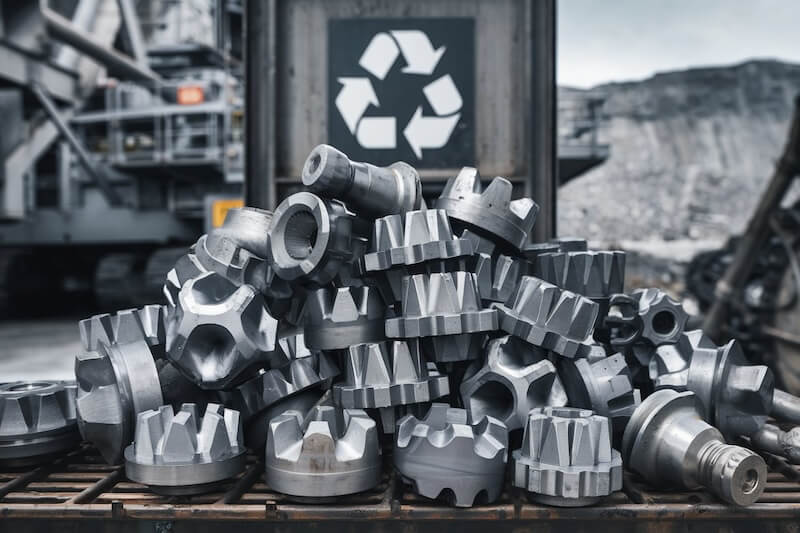
In an era of environmental responsibility, choosing longer-lasting, more efficient tooling supports sustainability initiatives and can enhance corporate reputation.
Details:
- Extended Tool Life, Less Waste: With fewer tools discarded, tungsten carbide reduces the material waste stream.
- Energy Efficiency: Efficient cutting and drilling reduce the energy needed for breaking rock, contributing to lower greenhouse gas emissions.
- Recycling Opportunities: Tungsten carbide scraps can be reclaimed and recycled, closing the loop and reducing reliance on virgin materials.
Strategic Investment: The Long-Term Business Case for Tungsten Carbide
Beyond immediate operational benefits, tungsten carbide tooling supports strategic objectives like profitability, competitiveness, and market leadership.
Details:
- Cost-Benefit Over Time: Initial higher costs are offset by increased productivity, lower maintenance, and fewer replacements.
- Brand Differentiation: Companies known for efficient, environmentally sound, and safe operations gain a competitive edge.
- Future-Ready Operations: As mining challenges evolve, tungsten carbide’s proven adaptability ensures that investments made today remain valuable tomorrow.
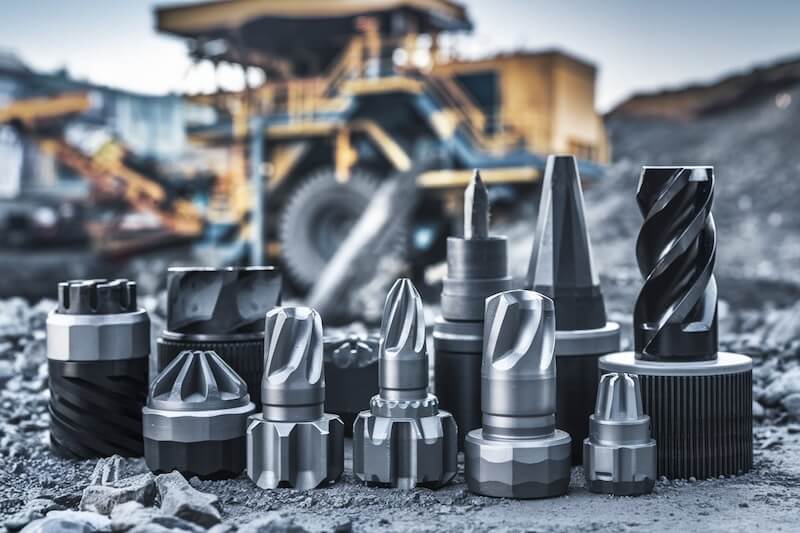
Conclusion
From enhanced durability and precision to reduced waste and improved safety, tungsten carbide tooling offers a transformative upgrade for the mining industry.
By understanding its composition, comparing it to alternative materials, and recognizing the tangible operational and strategic benefits, both equipment operators and CEOs can make informed decisions.
Adopting tungsten carbide tools not only optimizes day-to-day performance but also positions mining companies for long-term success, improved sustainability, and greater resilience in an ever-changing industry landscape.
Quick and easy: Enter your specifications and get a quote in one business day







